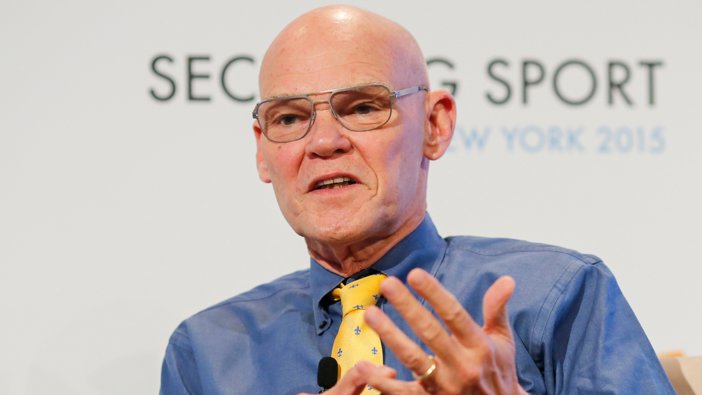
Carville: Democrats Still Winning
Despite record-low favorability, James Carville insists Democrats are winning key elections and gaining ground.
Carville Dismisses Party Image Crisis, Cites Victories
Veteran Democratic strategist James Carville pushed back against a wave of polling data indicating historic lows in his party’s favorability, emphasizing recent electoral victories as a counterbalance to negative perceptions. Speaking this week, Carville said, “You can't discount people winning elections,” underscoring the party’s ongoing success at the ballot box despite public discontent.
His comments followed the release of a new Associated Press-NORC survey, which found that just one-third of Democrats remain optimistic about the party’s future—a sharp decline from 60% last summer. Meanwhile, Republican optimism rose from 47% to 55% in the same period.
Carville acknowledged the unfavorable numbers but maintained that Democrats are performing where it matters most—elections. “I don’t doubt any of that’s true,” he said of the poor polling, “but we’re winning elections left and right as we’re talking about how the Democratic number or image is low.”
Democrats Outperform in Key Local and State Races
In recent months, Democrats have secured notable wins across the country. In Omaha, Nebraska, Democrat John Ewing, Jr. defeated a long-serving Republican incumbent to become the city’s first Black mayor. In Wisconsin, a Democratic-aligned candidate prevailed in a highly competitive and costly Supreme Court race, further bolstering the party’s judicial influence.
Democrats have also flipped red state Senate seats in Iowa and Pennsylvania through special elections, signaling resilience and organizational strength. These wins are particularly significant given the broader national narrative of Democratic erosion among traditional base groups such as Black, Hispanic, and young voters.
Nationally, however, the numbers paint a grimmer picture. The Democratic Party’s favorability ratings have dipped to 41% with 56% unfavorable in the latest Fox News poll—a historic low. Pew Research and the Wall Street Journal both recorded similar negative ratings, with just 36–38% viewing the party favorably. For the first time in a decade, the Democrats are polling below Republicans on favorability metrics.
Confidence in congressional Democratic leadership has also plummeted. According to Gallup, only 25% of respondents expressed confidence in the party’s congressional leaders, marking a nine-point drop from 2023. The Harvard Youth Poll further showed a sharp decline in approval among voters aged 18–29, a demographic that has traditionally leaned Democratic.
Carville, who rose to prominence as a key architect of Bill Clinton’s 1992 presidential win, remains forward-looking. He pointed to the upcoming gubernatorial election in Virginia as the next major battleground. “Let’s see what’s going to happen in Virginia,” he said, suggesting that a victory there could reinforce the Democrats’ grassroots momentum despite national polling headwinds.
As the Democratic Party continues to grapple with declining favorability and internal dissatisfaction, Carville’s message is clear: polling may set the tone, but election results ultimately shape the political landscape.






